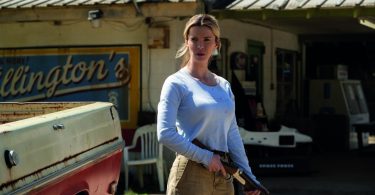The film industry pleasingly believes that there can never be too many adaptations of William Shakespeare’s immortal plays, and this is certainly true of ‘The Scottish Play’, Macbeth. Roman Polanski’s 1971 directorial effort, and Patrick Stewart’s heady performance as Macbeth in a more recent BBC production, are two of the greatest adaptations of any Shakespeare play ever to grace the screen. Justin Kerzel, the director of this new version, is bold and unapologetic in his aim to compete with these illustrious predecessors.
Like the eponymous character (played sublimely by Michael Fassbender), this production does not want for ambition. The blasted heaths and forests of Dunsinane are suitably fog-dogged and this murky setting (filmed in both England and Scotland) is paid as much attention as any of the characters.
Kerzel’s direction relies upon two key insights. First, as noted by Fassbender himself in a recent interview, Macbeth has recently returned from fighting in a brutal war. Fassbender’s retrospective diagnosis of Macbeth’s PTSD may seem a little too modern, but this was clearly at the front of the actor’s mind during the filming of every scene. His Macbeth is disaffected with life, confused in conversation, and displays Hamlet-esque levels of vacillation. His numb mental state usefully explains how an experienced battlefield combatant could make such sloppy practical errors, such as when he fails to leave behind the daggers that he has just plunged into Duncan’s heart. The focus on unusually lengthy battle scenes, and the resort to gimmicky slow-motion combat shots, is clearly intended to reflect Macbeth’s frightful state of anomie.
A sympathetic Lady Macbeth
A general dulling of emotions would presumably also curb his famously ambitious nature, making Lady Macbeth’s (Marion Cotillard) role in persuading him to fulfil his destiny all the more important. And so it seems to me a mistake for her to be portrayed relatively sympathetically, a trait which is bolstered by the play’s opening scene (and the film’s second important addition) in which the Macbeth’s bury their only child. Scholars still pore over the text and argue about whether or not the Macbeth’s loss of a child has any textual corroboration but, if accepted, a Macbeth who is completely disillusioned and confused by life off the battlefield would presumably need an even bigger push from Lady Macbeth before killing the King. I happen to like the idea of a Macbeth with PTSD, and of Lady Macbeth as a grieving mother, but not enough is done to reconcile these plot points.
[video:https://www.youtube.com/RgH_OnrYlCk]Despite these problems concerning the springs of regicidal motivation, Fassbender and Cotillard both put in fantastic performances and their sexually charged plans for murder are riveting. David Thewlis is also appropriately stately as Duncan, but his days at Hogwarts have perennially doomed him to hushed whispers of recognition from cinema goers, namely “Look, it’s Lupin!”
Michael Fassbender struts and frets his two hours upon the stage, and at this modest running time the film cannot be accused of outstaying its welcome. If anything, the cutting and pasting (but mainly cutting) of large parts of what is already one of Shakespeare’s shortest plays seems a little sporadic and slapdash. The loss of the porter scene, which usually administers a vital dose of comic relief in a play that can feel like one long dark night of the soul, is particularly hard to stomach.
The very best Shakespearean adaptations are often those that remain faithful to the Bard’s original play, and so the admirable ambition to be fresh and new is also the fatal flaw that prevents this good film from becoming a great one.








